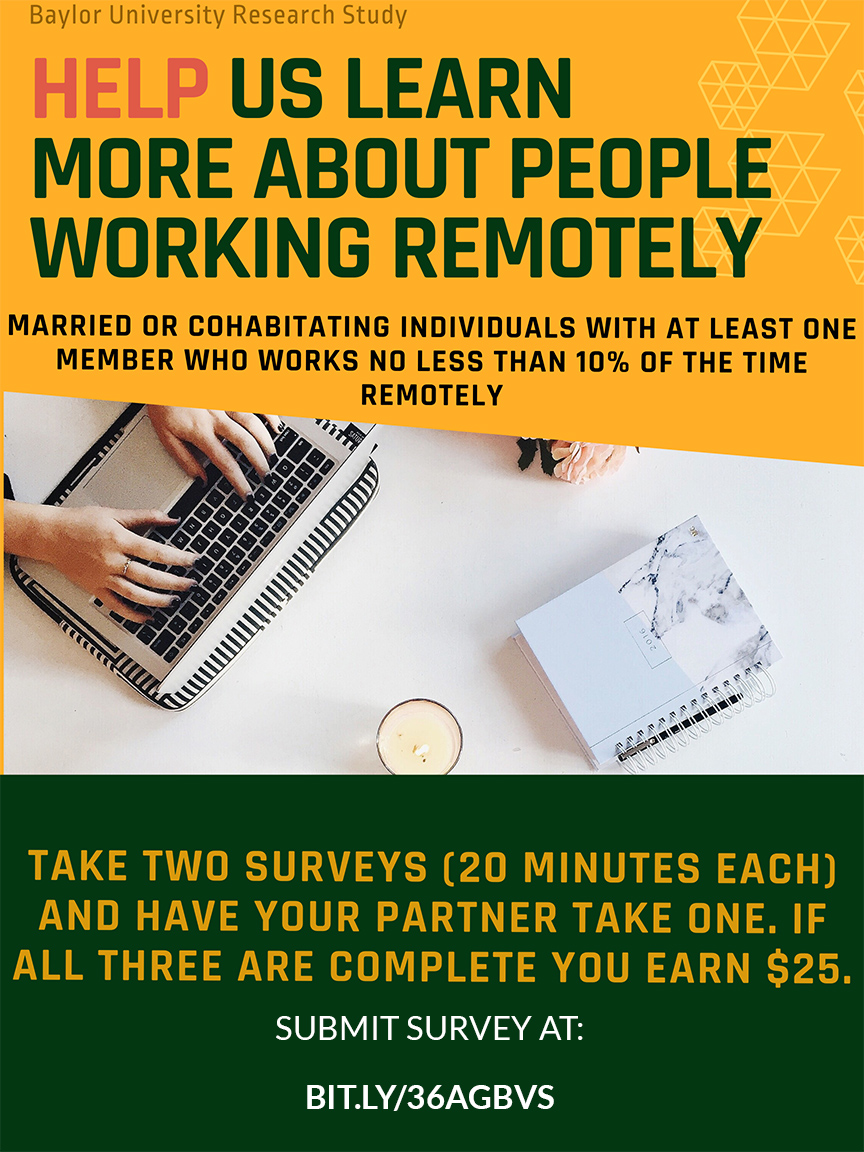Remote Work is a Double-edged Sword
Remote work may function as something researchers call a “challenge stressor,” which means it can help employees to be motivated and well-positioned to do their best work, but it can also be difficult for employees to manage at times. For example, when Sonya wants to work from home, she spends more time coordinating with her business partners compared to when she simply takes the elevator down to see them in person at the office. When Sonya’s boss sends her a vague email request, she may exchange three or four more emails with him instead of just going to his office to ask him to clarify. And although she enjoys the uninterrupted work time at home while her kids are at school, she does miss the social interaction if she stays home too many days in a row – even the small talk at the coffee station gives her some much-needed adult time that she misses when she chooses to work from home several days in a row. Too many days or too much time working away from the office can leave her feeling isolated and a bit lonely.
Still another aspect that feels challenging to Sonya is her constant juggling of home and work responsibilities, seemingly at the same time. If she works from home and she also has a sick kid at home, she is grateful she does not have to take a sick day or vacation day, but admittedly, she feels torn all day as she attends to her child’s needs and still tries to get her work done. In fact, more often than not, lately she finds herself working after the kids go to bed, ignoring her husband, to try to make up for time she lost during the day in juggling her family duties. When she works at the office and knows she has reliable childcare for the kids after school, she can focus and produce much more efficiently, notwithstanding the time she has to devote to commuting and getting ready for work on those days.
Sonya is surely not alone in the inner conflict she has about her remote work arrangement, especially as the prevalence of remote work has increased. The Society for Human Resource Management (SHRM) estimated recently that 59% of 2,700 firms across industries offer employees the opportunity to work remotely on a flexible basis like Sonya; 23% of firms offer full-time remote work arrangements and 35% offer part-time remote work arrangements. Recent estimates also suggest that at least 4.7 million employees (3.4% of the workforce) work from home at least 50% of the time, and this group has grown by 173% since 2005.
Researchers have studied the question about how remote work affects employees for over a decade, and the general conclusion is that the success of such arrangements really depends on the person involved, the organization allowing or requiring it, and the details of the remote work arrangement. If all factors are in place and ideal, then employees with the flexibility to choose where they work can experience increased satisfaction and commitment and reduced turnover, lower work-family conflict, a desire to work harder, and are better able to manage the demands of long working hours.
So the question remains, what type of person, boss, and remote work arrangement is needed to succeed?
A recent study that examines the impact of remote work on employee well-being offers several strategies to help managers provide remote work opportunities that are valuable to the employee and the company.
The study looked at 403 working adults who were surveyed across two studies that made up the research. The research team measured each employee’s autonomy (the level of a worker’s independence), strain (defined in this study as exhaustion, disengagement and dissatisfaction) and emotional stability.
Emotional Stability
- Emotional stability captures how even keeled someone is, or on the opposite end, how much their emotions might swing.
- An example would be if something stressful happens at work, and Sonya is high on emotional stability she would take it in stride, remain positive and figure out how to address it. But if Sonya is low on emotional stability, she might get frustrated and discouraged, expending energy on those emotions instead of on the issue at hand.
- This study shows that those who are high in emotional stability are likely to perform better in remote work situations.
Autonomy
- Autonomy is discretion on how to accomplish tasks and make other decisions about work. Autonomy is considered valuable in general, and especially critical in remote work. Most jobs that allow for remote work have a significant degree of autonomy, but certainly not all.
- Low autonomy can really harm the effectiveness of a remote work arrangement. An example would be if Sonya has to report to her boss about where she will work each day, or if she has to get approval for every major decision she makes throughout the day. The difficulty of this low autonomy would be exacerbated by remote work, as the employee must also navigate the challenges faced in remote work.
- Employees reporting high levels of autonomy and emotional stability appear to be best equipped to thrive in remote work positions. In contrast, remote employees reporting high levels of job autonomy with lower levels of emotional stability appear to be most susceptible to strain.







